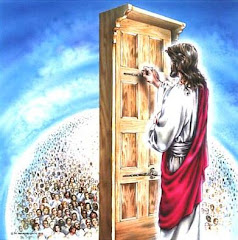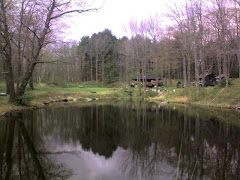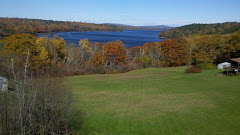TM asks:
I'm interested in learning more about Hebrews 6 and the various interpretations of it given in contemporary and historical contexts.
"It is impossible for those who have once been enlightened, who have tasted the heavenly gift, who have shared in the Holy Spirit, who have tasted the goodness of the word of God and the powers of the coming age, if they fall away, to be brought back to repentance, because to their loss they are crucifying the Son of God all over again and subjecting him to public disgrace." Hebrews 6:4-6, NIV
I was wondering what thoughts people had on how to interpret this passage?
I'm really looking for some kind of overview on this passage, it's interesting to see how it polarizes Christians.
A.
Points to ponder as we consider this passage:
- Every occurrence of the Holy Spirit in Hebrews refers to His role as a witness to the word of God: Heb.2:4, 3:7, 6:4, 9:8, 10:15, 10:29
- A clear description of the enlightenment power of the Holy Spirit through his witnessing role is in John 16:7-11
- The Jews instigated the death of Jesus---having Him crucified--- because they so rejected His words.
- Heb 6:7-8, is a symbolic parallel of 6:4-6 where:
- the earth is a picture of the heart of man (as it is in the parables of Matthew and other places in the Bible)
- water represents the word of God (as it is does throughout the Bible)
- vegetation of blessing is the evidence of the new life that comes from repentance and faith upon receiving God's word.
- Thorns and thistles is a picture of the curse---evidence of the old nature with its lack of repentance and saving faith at receiving the word of the Gospel.
- This passage also has a parallel in Numbers 13-14 (a passage that has echoes in Heb 3:7-4:11 as well) where the grapes, brought back from Canaan as a witness of God's blessing of the land, were tasted by the people, but still they refused to enter because of unbelief, and so fell short of God's rest---falling away in the wilderness.








This is been a controversial segment for many generations. It does cause one to think many different thoughts, but the one that most often comes to mind is that if one is "truly" saved, then it will be impossible for him to blaspheme against the Holy Spirit. The two do not hold together, therefore, if one pretends to accept Christ or only does it in a superficial way and not into his core, then he may fall away, but the question is did he truly accept Christ and was he truly saved in the first place. To me that should be the subject of debate and the debate continues to this date.
ReplyDeleteJim
Jim,
ReplyDeleteI agree with:
"It does cause one to think many different thoughts, but the one that most often comes to mind is that if one is "truly" saved, then it will be impossible for him to blaspheme against the Holy Spirit."
As you can tell from my 'connect the dots' answer.